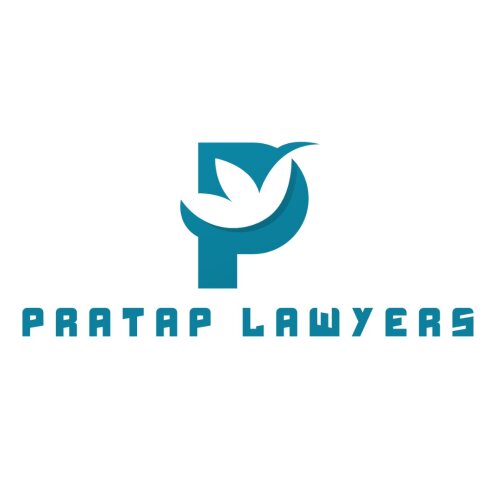Best Conveyancing Lawyers in Fiji
Share your needs with us, get contacted by law firms.
Free. Takes 2 min.
Free Guide to Hiring a Real Estate Lawyer
Or refine your search by selecting a city:
List of the best lawyers in Fiji
About Conveyancing Law in Fiji
Conveyancing is the legal process of transferring ownership of property from one person to another. In Fiji, conveyancing typically involves land and real estate transactions. Due to the country’s unique system of land tenure, which includes native (iTaukei), state, and freehold land, conveyancing can be a complex area of law. The process not only ensures a valid transfer of title but also helps to protect the interests of both buyers and sellers through the proper preparation, execution, and registration of legal documents.
Why You May Need a Lawyer
There are several situations in which you might require legal assistance for conveyancing in Fiji:
- Purchasing or selling a house, land, or commercial property
- Transferring property as part of a family arrangement, inheritance, or divorce settlement
- Securing a mortgage or refinancing an existing property loan
- Leasing land or renewing a lease agreement
- Resolving property disputes, including boundaries or ownership issues
- Dealing with property gifted or inherited according to wills or succession laws
- Navigating the requirements for foreign property buyers or investors
Given the specific requirements for different types of land and the risk of invalid transactions, a lawyer’s expertise can help prevent costly mistakes and delays.
Local Laws Overview
Several local laws and regulations are particularly relevant to conveyancing in Fiji:
- The Lands Transfer Act governs the registration and transfer of freehold and state land. It sets out procedures for title registrations, caveats, leases, mortgages, and other property dealings.
- The iTaukei Land Trust Act regulates the leasing and administration of native land (approximately 87 percent of land in Fiji). Native land cannot be bought or sold but may be leased with consent from the iTaukei Land Trust Board.
- The Unit Titles Act covers the sale and management of strata-title properties, such as apartments and condominiums.
- The Stamp Duties Act and Valuation of Land Act outline taxation, stamp duty rates, and other financial requirements for property transactions.
- There are also rules restricting foreign ownership of certain properties, especially in urban and coastal areas.
- Registration of property transfers, leases, and mortgages is done through the Registrar of Titles, making registration a vital part of ensuring lawful ownership.
Complying with these laws is critical to avoiding disputes, penalties, or void transactions.
Frequently Asked Questions
What is conveyancing?
Conveyancing is the legal process of transferring ownership of property from one party to another, including preparation, execution, and registration of documents.
Do I need a lawyer for a property purchase in Fiji?
It is advisable to engage a lawyer for any property transactions in Fiji due to the complexity of local laws, required documentation, and risks of invalid transfers.
What types of land can be bought or sold in Fiji?
Freehold land can be bought and sold freely. Native (iTaukei) land can only be leased, not sold, while state land is administered by the government and also usually leased.
Can foreigners buy property in Fiji?
Foreigners can generally purchase freehold property, but there are restrictions on buying certain residential land, especially in regulated urban and coastal areas. Professional advice is required to ensure compliance.
What is a caveat and when is it used?
A caveat is a legal notice lodged with the Registrar of Titles to prevent the transfer or sale of a property until a dispute is resolved or the caveat is withdrawn.
What happens on settlement day?
Settlement day is when payment is made, documents are exchanged, and the buyer takes legal ownership. The lawyer ensures all documents are correct, payments are complete, and property title is registered.
Are there taxes or duties payable on property transactions?
Yes, stamp duty and potentially other taxes apply to property transfers and leases. The rates vary depending on the property type and value. Your lawyer will confirm amounts and payment processes.
How long does conveyancing take in Fiji?
Conveyancing may take a few weeks to several months, depending on the type of property, required consents, and administrative processes.
What role does the iTaukei Land Trust Board play?
The iTaukei Land Trust Board manages all native land, including approving leases, collecting rent, and ensuring compliance with regulatory requirements.
What should I do if there is a dispute about property boundaries or title?
You should consult a qualified lawyer immediately to review title documents, survey plans, and pursue resolution through negotiation or legal action if necessary.
Additional Resources
If you need further information or official guidance on conveyancing in Fiji, you may find the following helpful:
- Office of the Registrar of Titles - Responsible for land and property title registration.
- Fiji Law Society - Provides details of licensed lawyers qualified in conveyancing.
- iTaukei Land Trust Board - Manages and provides information on leasing native land.
- Ministry of Lands and Mineral Resources - Deals with state land administration and policy.
- Consumer Council of Fiji - Offers advice on property-related consumer rights and disputes.
Next Steps
If you are considering a property transaction or are facing a conveyancing issue in Fiji, it is advisable to follow these steps:
- Consult a lawyer experienced in Fijian property law as early as possible
- Gather all relevant documents, such as existing title deeds, identification, and contracts
- Discuss your aims and concerns with your lawyer to understand your legal position and options
- Request a written quote and clarity on professional fees, taxes, and timelines
- Your lawyer will guide you through document preparation, negotiation, registration, and completion
- Keep clear records of all communications, contracts, and payments
Taking legal advice and following the proper conveyancing process helps avoid future disputes, ensures your rights are protected, and provides peace of mind.
Lawzana helps you find the best lawyers and law firms in Fiji through a curated and pre-screened list of qualified legal professionals. Our platform offers rankings and detailed profiles of attorneys and law firms, allowing you to compare based on practice areas, including Conveyancing, experience, and client feedback.
Each profile includes a description of the firm's areas of practice, client reviews, team members and partners, year of establishment, spoken languages, office locations, contact information, social media presence, and any published articles or resources. Most firms on our platform speak English and are experienced in both local and international legal matters.
Get a quote from top-rated law firms in Fiji — quickly, securely, and without unnecessary hassle.
Disclaimer:
The information provided on this page is for general informational purposes only and does not constitute legal advice. While we strive to ensure the accuracy and relevance of the content, legal information may change over time, and interpretations of the law can vary. You should always consult with a qualified legal professional for advice specific to your situation.
We disclaim all liability for actions taken or not taken based on the content of this page. If you believe any information is incorrect or outdated, please contact us, and we will review and update it where appropriate.
Browse conveyancing law firms by city in Fiji
Refine your search by selecting a city.














